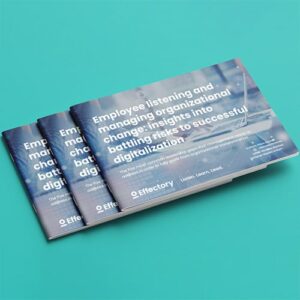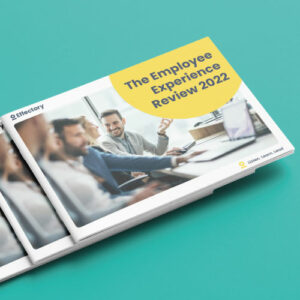Navigating the tumultuous seas of the 21st century, leaders find themselves in uncharted territory. We’re not just facing a new day; it’s a new era – an era marked by rapid digital evolution, unpredictable economic fluctuations, and complex social dynamics.
Embracing Agility: Leadership in the 21st Century

As the ground shifts beneath us, it becomes necessary to reflect on our traditional leadership theories and styles, applying their wisdom while adapting to the contours of our modern world.
Starting with familiar waypoints, we revisit three leadership theories that underpin our understanding of leadership:
- Great Man/Woman Theory: Hailing from the 19th century, this theory suggests that leaders are born, not made, and that some individuals seem almost destined to step up and take charge of a situation, leading others towards success or safety.
- Contingency Theory: This theory proposes that there’s no one-size-fits-all approach to leadership. The most effective leadership style depends on the situation and various factors, including the leader’s capability, the team’s skills, and the nature of the work.
- Behavioral Theory: The cornerstone of this theory lies in the belief that leadership is not just an inherent gift. Instead, it is a complex set of skills that can be learned, practiced, and perfected over time.
However, one element remains consistent across all theories: the context. Regardless of whether leadership traits are inherent or acquired, understanding the context and adapting your leadership style accordingly is crucial.
We also need to mention three core leadership styles that can influence management approaches:
- Transformational Leadership inspires employees to exceed expectations, fostering innovation and growth.
- Transactional Leadership motivates through a reward-and-punishment system, offering clear directives and monitoring performance closely.
- Situational Leadership adapts to the team’s needs and the situation’s demands, allowing for a more personalized leadership approach.
But as we enter the 21st century, we find that these foundational theories and styles need recalibration to match the pace of our ever-changing world.
How HR can lead business success
HR and employee listening are crucial to business success. Here is how employee insights can help your organization.
DownloadLeading in the Digital Revolution
In the 21st century, the rhythm of change has been pulsating faster than ever before, reshaping our lives and the way we work. With it comes an array of challenges and changes that leaders must navigate daily. The 21st century is characterized by constant disruption and holds challenges for leaders in every sector.
Dealing with economical and geopolitical situations today, business markets are volatile, customer behavior unpredictable, and geopolitical tensions are escalating. Consider the forces at play:
- Climate change has pushed businesses to adopt a stronger social responsibility, and employees now expect their workplace to make significant contributions to environmental sustainability.
- The global pandemic has revolutionized our ways of working and interacting.
- Geopolitical tensions are increasing, making international business more challenging.
- Inflation levels are skyrocketing, and economic instability is a concern.
- Venture capitalists are becoming increasingly powerful stakeholders in businesses.
- Market disruption is happening more rapidly and unexpectedly than ever before.
- Labor market shortages mean a high demand for skilled employees.
- Changing demographics, like an aging population and decreasing birth rates.
Simultaneously, the digital revolution has radically reshaped our world. We’ve shifted from local to global, from isolated to interconnected. New technology such as ChatGPT can now generate entire workshop programs in seconds. This rapid digitalization has birthed new ways of learning, working, and connecting, turning us into citizens of a global society.
In addition, we’re seeing a shift in how we perceive and engage with work. Employees are seeking more than a paycheck; they want purpose, fulfillment, and a socially responsible work environment. At Effectory, we frequently witness this transformative shift in employee expectations within the HR departments of our clients.
This change has reshaped organizational structures and demanded more from our leaders – flexibility, empathy, and a people-centric approach have never been more important. As we move forward, leaders are met with novel challenges – fostering connectivity and performance in remote teams, coordinating fluid teams, bridging generational gaps, and leading change in a world where the only constant is change itself. To meet these challenges head-on, leaders of the 21st century need a new mindset – one that champions agility, encourages innovation, and fosters deep, meaningful connections with their teams.
Battling risks to successful digitalization
Discover global insights into battling risks to successful digitalization. We identify the five most common leadership gaps that management needs to address in order to fully profit from organizational transformation.
DownloadAdopting a Modern Mindset
Leaders of the 21st century need to adopt a modern mindset to cope with these unique challenges. The key? Agility. Being flexible, open to change, and proactive is essential. As a leader, you need to connect with your team members on a deeper level, fostering an environment where innovation thrives and change is not feared but welcomed. Therefore, effective leadership in the 21st century could be distilled into these fundamental actions:
- Connect: Instead of focusing solely on the output, shift to a more people-centric management approach.
- Innovate: Develop innovative ways of working and strategies that fit the current scenario.
- Drive change: Proactively implement new processes and inspire teams to embrace change.
This modern leadership approach draws from a diverse range of skills and attributes, such as:
- Fostering innovation, collaboration and a sense of purpose while building resilient teams.
- Tapping into the potential of each team member.
- Leveraging the power of data to boost team performance and drive business growth.
- Ensuring consistent productivity while managing remote teams.
- Focusing on self-development to continually adapt and grow in an ever-changing world.
The role of effective communication and, more importantly, active listening can’t be overstated in this new era of leadership. Modern leaders should be in tune with their teams’ sentiments, concerns, and suggestions – for this, employee listening tools have become an indispensable asset.
Download the Employee Experience Review
Discover how employees around the world are experiencing different parts of the employee journey and how this affects the employee experience.
DownloadThe Power of Listening
Active listening is the cornerstone of successful leadership, and thanks to technological advancements, we now have a plethora of tools at our disposal to facilitate this crucial aspect of modern leadership.
Some employee listening solutions, like pulse surveys and employee engagement surveys, offer a valuable window into your team’s thoughts, feelings, and motivations. This knowledge can then guide your actions as a leader.
Harnessing the power of these tools allows you to:
- Understand employee sentiment: Frequent check-ins with the help of pulse surveys provide insights into your company culture – how it’s evolving and what your employees think about their workplace.
- Track the effectiveness of hybrid working: Hybrid working scans can helps leaders pinpoint strengths and weaknesses in a hybrid work model, allowing them to make necessary adjustments.
- Improve engagement: Employee engagement surveys can help leaders understand the factors that drive engagement within their teams and formulate strategies to enhance it.
Leadership is a key influential factor shaping how employees perceive their employer. In fact, using our global benchmark dataset, we dove into the analysis of eNPS. This is a straightforward method where businesses ask employees: “On a scale of 0 to 10, how likely are you to recommend our company as a place to work?” The answers can offer a snapshot of overall employee satisfaction. In our analysis, we identified the following top three drivers:
- Sustainable Employability
- Team Leadership
- Change Management
What this suggests is that the quality of leadership within a team can greatly influence an employee’s likelihood to recommend their workplace to others. Strong, effective leadership that listens to and supports team members can foster a positive work environment, thus leading to higher eNPS scores.
By leveraging employee listening solutions, leaders can pave the way for improved engagement, productivity, and overall organizational success. This process of “listen, learn, and lead” enables leaders to make data-driven decisions that reflect their team’s needs and aspirations, ultimately creating a more inclusive, engaging, and productive workplace.
In the words of John C. Maxwell: “Leadership is not about titles, positions, or flowcharts. It’s about one life influencing another.“
Modern leadership is all about navigating constant change with grace, understanding and leveraging innovation while prioritizing people, and making bold decisions while acknowledging our limitations. With its adaptable nature, situational leadership may well become the compass guiding us through the challenges and opportunities of this century.
As we move forward in the 21st century, we can’t forget that people are the most important assets to our organizations. To bring out their potential and success, we need to really listen to them. With effective employee listening solutions and the right leadership approach, we can empower our teams, and encourage them to lead our organization successfully through the ongoing changes of the 21st century.
This article was written by Effectory consultants Remco Buil and Marnix Hiep.
Book a free demo. See our solutions in action.
Effectory is Europe’s Leading provider of Employee Listening Solutions. Schedule a product demo and discover how to enhance your employees’ engagement.
Demo request


